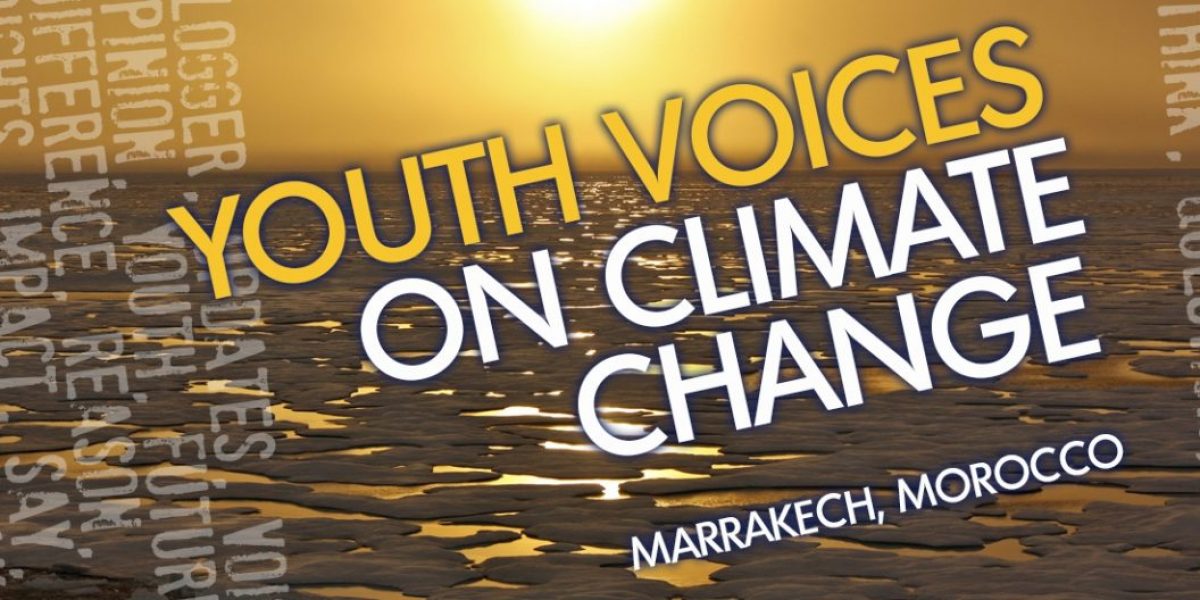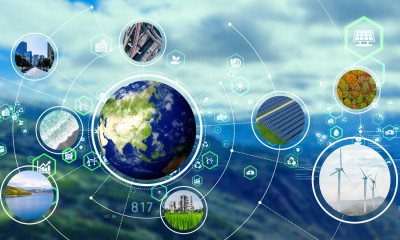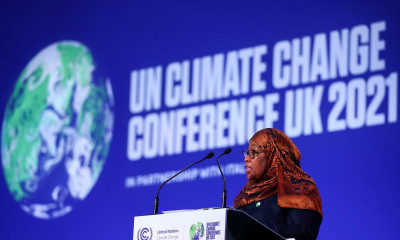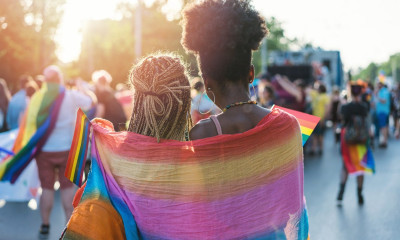DAY 10: Friday, 18 November 2016
From Marrakech: update by Annabel Fenton, SAIIA Youth Policy Committee
I have no doubt that the last day of COP22 was by far the busiest: negotiators were scrambling to finish the outcome documents, final commitments were being made by countries, and all of civil society were either eagerly watching and co-ordinating their plans for collaboration moving forward.
It seems that the general feeling of the outcomes of COP22 was one of ambivalence. The election of Trump definitely disrupted the negotiations, but luckily, in some ways, it put more pressure on other countries to upscale their climate change action, and no one has spoken about pulling out of the Paris Agreement, even if Trump does. Another issue is that many are disappointed by the lack of commitments made to adaptation finance, as the current contributions do not even come close to meeting the projected need. However, not all hope is lost because in the COP22/CMP12/CMA1 outcome document, it was finally agreed that the Adaptation Fund will serve the Paris Agreement. Furthermore, Sweden, Germany, the Wallonia region of Belgium, and Italy have met their target of pledging USD$80 billion to the Adaptation Fund.
One of the most talked-about happenings of the day was an announcement by the Climate Vulnerable Forum (CVF), a group of the world’s least developed, most climate-vulnerable countries, that they commit to becoming carbon-neutral and depending solely on renewable energy by 2050. This is an incredible gesture, especially as many of these countries are less capacitated and contribute less carbon emissions than their developed world counterparts. Their example is definitely a demonstration of political will, and it is crucial that industrialised countries learn from their example so that global temperature increase can remain below 2 degrees.
While these negotiations were happening, I was involved in my own form of South-South cooperation. The YOUNGO youth from the Global South met with our new Focal Point, and we were able to discuss plans for how we can better represent our countries within youth climate action, as they are the ones which shall be disproportionately affected by climate change. It is always interesting to see how global power dynamics materialise on a more tangible scale: even though the Global North youth delegates are very open to hearing the voices of the Global South, they are still the ones who often take the lead or represent the youth, purely because they tend to have better capacity and support from their country, including better access to communication, information and funding. This imbalance is the materialisation of global inequality, and it is promising to see that the issue is being talked about within the constituency. It is up to us, as the youth, to target institutional inequity that has rippled from inequity within the UN system, and ensure that the voices of the most vulnerable and marginalised are heard, represented, and direct the discussion.
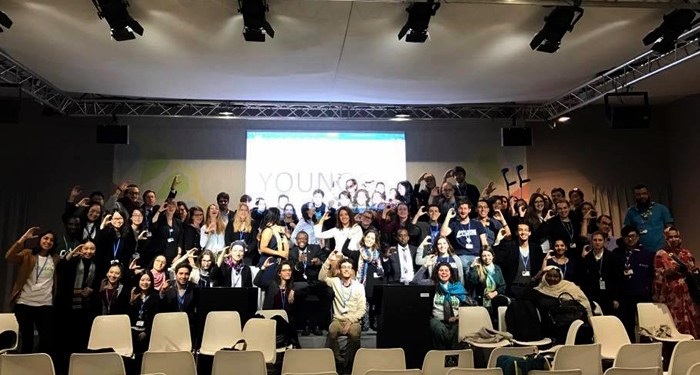
This issue of equitable representation and resource distribution is becoming increasingly important, especially when it comes to climate action. In a side event I attended today about insuring for loss and damage, a delegation member from Fiji highlighted how important the willingness of the community was in the relocation projects that had to be initiated after a tropical cyclone hit the area on Vunidogoloa. This willingness only comes about when people feel like their voices are being represented, and listened to.
Attending COP22 this week has been an incredible learning experience for me, as I have been able to see what the nitty-gritty negotiations look like, and how a lot of what we characterise as ‘international negotiations’ really do occur: the unnecessarily snazzy diplomatic Mercedes, China randomly reminding everyone that Taiwan is apparently theirs, negotiations running for longer than planned, and all of the protest action and lobbying from civil society. I have also begun to see how the Conference of the Parties is not just a once-off annual event: the decisions made here are already affecting development strategies within countries, and will continue to do so as more Nationally Determined Contributions and National Adaptation Plans are developed. Lobbying from civil society is also an endless process, because only with more pressure will parties ensure that the aforementioned policies are equitable, and only with this pressure will adaptation financing be largely up-scaled.
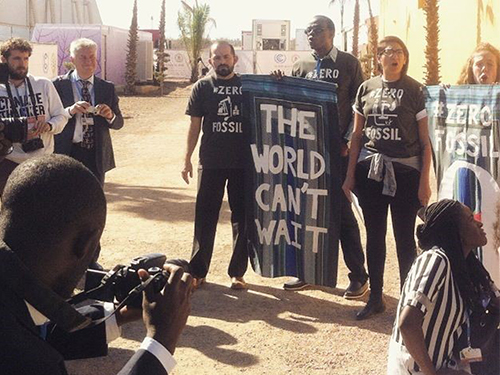
While this might not be the ‘COP of Action’ that everyone had hoped for, I do not think that it would be fair to term it the ‘COP of inaction’ either, because that would undermine the strides made by the CVF, the decision for the Adaptation Fund, and the continued hasty ratification of the Paris Agreement by most member parties.
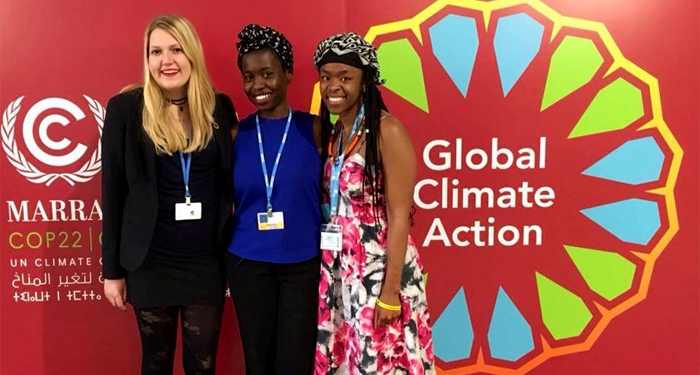
DAY 9: Thursday, 17 November 2016
From Marrakech: Ditebogo Lebea, SAIIA Youth Policy Committee and Lutheran World Federation delegate
Today Faith-Based Organizations such as ACT Alliance, Lutheran World Federation and Islamic Relief joined forces to have a #HungryForAction fast to pray for climate change as well as show their solidarity for countries that have suffered the effects of climate change.
The fast first began two years ago by the Filipinos after a severe typhoon swept through the Philippines resulting in roughly 6 000 lives being lost. The Filipinos then mobilized themselves and had a fast in order to advocate for climate justice and create awareness about climate change. News about the fast spread and churches became involved. Actions like these have been a popular way to advocate for climate justice. In previous years, leaders in the Faith-Based Organizations would stage a sit in and have empty plates with the message #FastForTheClimate branded on the plates and on their shirts. This year, we marched around the zone open to the public, as well as the restricted zone and had Bishops read messages regarding the fast.
An action was held at the entrance of the restricted zone, where negotiations are being held. We had a poster reading 1.5 degrees is key, and the rest were pictures of vulnerable African people. We also gave away key rings with the message ‘1.5 degrees is key’ written on them. This action attracted the attention of many negotiators from various countries.
In solidarity with the people in Africa who have been vulnerable to climate change, the Lutheran World Federation delegation wore their traditional attire. This was not only to advocate for climate justice in Africa, but also to further remind negotiators about the effects of climate change in Africa and that solutions are needed NOW!
Today was very enlightening in seeing the role of Faith-Based Organizations in tackling climate change and advocating for climate justice. I, honestly, never believed that fasting could be so difficult.
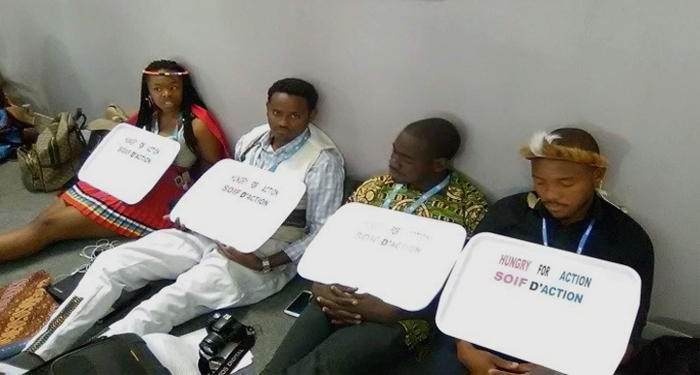
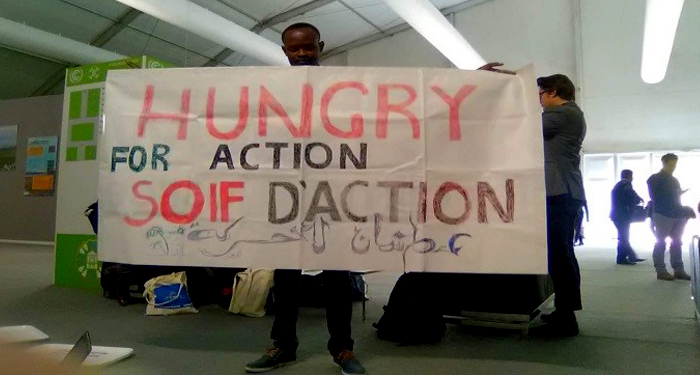
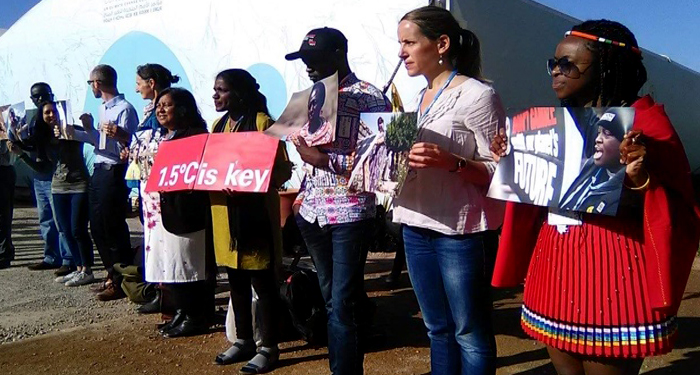
DAY 8: Wednesday, 16 November 2016
From Marrakech: update by Annabel Fenton, SAIIA Youth Policy Committee
With only a few days left in the conference, we have been in the thick of the high-level segment, with facilitative dialogues dealing with ambition, implementation and one of the biggest topics: finance.
From my experience so far, the two most talked-about issues are the implications of the Trump presidency and the Adaptation Fund.
With a sturdy foundation for the Paris Agreement, it seems that the discussion has now turned to practicalities and technicalities – especially when it comes to adaptation funding. This issue is especially crucial to Africa, and was a theme of one of the Africa Day side events today. One of the main technical debates has been about whether the Adaptation Fund will serve the Paris Agreement, as it has been serving the Kyoto Protocol up until now. The difference between the two is that some key countries, including the United States and China, are signatories of the Paris Agreement but not the Kyoto Protocol. Despite the contention that has been building, today it was finally agreed that the Adaptation Fund will serve the Paris Agreement, meaning that the United States and China will have an involvement in the Adaptation Fund – though to what degree is yet to be determined.
This is especially true given the recent election of Trump, and the speculation around whether he will pull out of the Paris Agreement – a process that would take the United States four years. In what was probably an attempt to restore some faith in the United States, John Kerry spoke at a press conference today, re-iterating the commitments to renewable energy and finance that have been made by the US under the Obama administration.
Despite this speech, many are still doubtful of the COP22 outcome; many expected more action, yet it seems there has been less urgency in negotiations because such huge progress was made with the Paris Agreement. With tomorrow being Climate Justice Day, some of these concerns are bound to be raised and hopefully delegations will be reminded of the urgency of climate change, especially for vulnerable populations.
From Marrakech: Phiwayinkosi Mungwe, Reflecting on increasing regional participation in the youth constituency at COP
Another frustrating couple days as our fight for inclusive youth participation becomes a challenge. The Participation Working Group of YOUNGO just finished a document that outlines the importance of having regional coordination. This document was started in Paris, and highlighted the need for the distribution of knowledge to young people, story sharing about actions within different regions, and the need to create space for capacity building amongst youth. Just as our country negotiators do not agree on everything, we also struggled to reach universal consensus.
Presently, there is one Focal Point selected for the Global North and one Focal Point selected for the Global South. In the history of YOUNGO, there has only been an African representative selected once as the Global South Focal Point. It can be very difficult to access knowledge about YOUNGO programmes and work, and the current system of YOUNGO could do more to include all of us. We shall soldier on to ensure that YOUNGO also serves as a voice of those in our African Continent.
As we said our goodbyes to the current United Nations Secretary General Ban Ki-moon, at a very touching civil society farewell programme and the departing United Nations first ever Secretary General Envoy on Youth Ahmed Alhendawi, we are hoping for a continued support for young people to be given platforms to engagement.
DAY 7: Tuesday, 15 November 2016
From Marrakech: update by Annabel Fenton, SAIIA Youth Policy Committee
In South Africa, one of the most common things for citizens to do when we mention the government is complain about corruption and inefficiency. However, today, as I was sitting in the South African team meeting facilitated by Dr Edna Molewa, the Minister of the Department of Environmental Affairs (DEA), I couldn’t help but feel an overwhelming pride for my country. As the microphone was passed around to various negotiators on the South African team, I realised that one thing our government is doing really well on is environmental policy. This realisation crept up on me in various forms throughout the day.
To begin with, the mere fact that the DEA has a ‘Team South Africa’ meeting that is an open forum for all South African COP22 attendees, including business and civil society, highlights how inclusive and transparent our government is on this issue. When I was explaining the meeting to an American member of the YOUNGO, the youth constituency, the idea sounded completely foreign to her: she barely knew who her country’s negotiators were, let alone what their current plans and strategies are.
Even before the meeting, when I began work on a YOUNGO policy document on adaptation, I couldn’t help but realise how much was being done by South Africa. Out of all of the international youth delegates I was working with, I was the most clued-up on national adaptation plans, and the need for them to target food security, and build capacity among vulnerable populations – and the reason why I was aware of this is because I have heard it mentioned by Minister Molewa in previous statements and consultations. I am eager to see how this policy-drafting process works out with YOUNGO and what will come out of writing such a document. One thing is certain though, by joining this working group, I feel like I’ve chosen my angle, and it has made the entire negotiation process a lot easier to digest.
Today was the beginning of the high-level segment of the COP, and there was so much going on. During the ‘high-level segment’, global leaders come together for the official convening of the COP, and resolve issues that were not dealt with in the preceding working groups that convened last week. Because it is such a high-profile event, there is restricted access and I had to watch the morning sessions on a screen in an overflow room. However, I was able to get a ticket from YOUNGO to attend some of afternoon sessions, and I got to see the heads of states and ministers convene in person.
It was interesting to see that Niger, on behalf of the Africa group, got to open the session, and brought up many key themes: what will the future of the Adaptation Fund be, and will it serve the Paris Agreement? The speaker also mentioned two paradoxes faced by Africa: firstly, the fact that the continent’s population will suffer the most from climate change, even though the continent has only contributed to 4% of global emissions; and secondly, the fact that Africa as a whole has the greatest potential for renewable energy, but is still unable to provide electricity to the majority of its people because of a lack in infrastructure, tied to its underdevelopment and colonial past. These sentiments are inline with those of G77+China, and I know that South Africa has spear-headed a lot of the efforts to cement this strong position.
Agriculture is less of a blatant win when it comes to South Africa’s strong position, though, as it appears that funding for agro-ecology initiatives, such as those I learnt about at an Action Against Hunger side event, are not prioritised fully in South Africa’s position. However, it was promising to see how open our negotiators were to changing this in the next few days.
While the Trump presidency and financial conservatism from other developed states make many nervous about what lies ahead, I remain hopeful and inspired by the fact that at least nationally, I feel well represented and that should not be taken for granted.
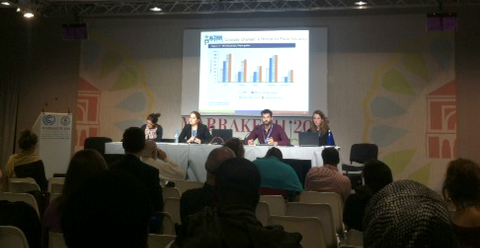
DAY 6: Monday, 14 November 2016
From Marrakech: update by Annabel Fenton, SAIIA Youth Policy Committee
Today was my first day at COP22 – and my first day at any Conference of the Parties. Arriving in Marrakech, trying to catch up with the negotiations, and trying to map out the various civil society constituencies, I started off with the question of where my entry point into the endless web of events and processes will be.
This has especially been interesting for me as a delegate from a ‘Youth Policy Committee’, because within our committee, we have all taken on various thematic areas at different times, and I am still in my undergraduate degree, and thus I have not developed a specialised research angle as of yet. I basically have the freedom to decide what I want my entry point to be for the next few days.
By exposing myself to the Climate Action Network constituency as well as YOUNGO, I have been able to figure out what some of my options are. It has been eye-opening to see how civil society has been organising under themes constituencies, and even though they are different in their make up, their approach has been similar: they have formed working groups around key thematic areas, and each group follows the relevant negotiations.
Adaptation has particularly interested me thus far, because it is a key priority within the Africa position, and the South African government have been pushing for it to be a bigger priority on a global level, which echoes the call of most G77+China parties. The main reason for this? Developing countries are disproportionately affected by climate change, which has been evident by calls from Nambian youth about desertification, indigenous Brazilians about deforestation, and Small Island Developing States about sea level rise – among countless other issues. I hope to see how this pressure from the G77+China manifests in the High-Level discussions in the next few days, which will involve country leaders.
Today was also Education Day at COP22, and I attended a High-Level Side Event that was held by UNESCO. This is also specifically relevant to developing countries, Africa in particular: not only because adaptation education is vital to resilience building, but also because we will soon have the largest youth population in the world, as highlighted by the UNICEF Agenda 2030 report. Beyond the spectacle of seeing the Princess of Morocco, Lalla Hasnaa, I was also interested to hear from UNESCO about the Global Education Monitoring Report that they have released. The report highlights the lack of integration of climate change education into the curriculum, and calls for a greater focus on hands-on climate change education, that is cross-cutting and connects current grassroots challenges to broader global climate changes.
As COP22 is supposed to be the ‘COP of Action’ I think highlighting these linkages is crucial now more than ever. I am hopeful that these urgent issues for developing countries will continue to come to the fore of discussions due to the seemingly united and unwaivering position of G77+China. Such a coalition of developing countries begins to challenge the power of developed states, and pressures them into doing more for climate change on the whole. While such contention may bring about delayed agreements between parties, it might be a step towards achieving an agreement that proposes implementable change, accountable adaptation finance and nationally intended contributions (NDCs) that will have a substantive impact in mitigation, adaptation, and sustainable development.
From Marrakech: update by Phiwayinkosi Mungwe, official Youth Delegate for South Africa
We have now reached the second week of the negotiations and everything is becoming more intense! This is because the high-level segment of COP22 has begun, and ‘ranking officials’, including ministers and heads of state, have arrived. This includes our very own Minister of Environmental Affairs, Ms Edna Molewa, who arrived on Saturday. There are also South African Members of Parliament in the Environmental Committee in attendance.
On Sunday, the South African delegates had a meeting that lasted until midnight discussing South Africa’s position within the current negotiations. With little for me to do during the high-level negotiations because most of the groundwork was set last week, I have been following all the youth sessions and programmes. The Youth Non-Governmental Organization (YOUNGO) released a press release in which we, as young people, expressed our dissatisfaction with the progress of this COP: Marrakech was said to be an ‘The COP of Action’, yet nothing actionable has really come out of it.
Dissatisfaction also materialised in the form of several marches and protests held in and outside the conference venue. The involved organisations pleaded to global leaders to halt new coal and fracking projects, disregard the ‘carbon capture method’ that has been proposed and to rather keep fossils in the ground.
The United States are also causing much tension because of the uncertainty about whether Trump will pull out of the Paris Agreement, whether that is even possible, and what implications this could have for the Parties. This discussion has been apparent among NGOs, heads of states as well as the general population.
Hopefully, the High Level segment of COP22 will bring about the much-needed development of implementation strategies for countries’ Nationally Determined Contributions.
DAY 5: Friday, 11 November 2016
From Marrakech: update by Ditebogo Lebea, SAIIA Youth Policy Committee and Lutheran World Federation delegate
Today, I travelled by train from Marrakech to Rabat. What I saw was a vast area that was dry – dessert – yet about five houses formed communities there. In other parts, small communities with wrecked houses also lay, and what looked to be once used for large farms where crops were harvested was left barren. Not only did I begin to wonder about how people in these areas live, I began to think about how life might turn out in Africa. What does the future of South Africa look like when we rapidly transitioned from experiencing drought to now facing floods?
It is too late to now start having discussions about climate change, especially in South Africa. It is too late to try to convince people that climate change is a thing and severe consequences are to follow. It is now time to act. It is time to adapt to climate change. It is time to ensure that we are resilient to climate change. It is time to mitigate climate change, which means it is time that individuals realize their roles and responsibilities; this means changing the way we live. It is crucial that there is intergenerational justice and participation by all in addressing climate change. Whilst the effects might be devastating, there is hope, but we need to act NOW!
DAY 4: Thursday, 10 November 2016
From Marrakech: update by Ditebogo Lebea, SAIIA Youth Policy Committee and Lutheran World Federation delegate
I entered COP confused. Today however, I feel different. Being able to celebrate Young and Future Generation Day at COP and participating in the Youth inquiry with the UNFCCC Secretariat left me feeling more confident and empowered than when I arrived. It challenged me to realise my role in climate change. Yes I am young, the youngest delegate in the Lutheran World Federation, and furthermore the youngest amongst the delegates here from South Africa, but my voice is loud and the panelists at the Youth Inquiry reiterated that point. As youth, we should not forget the fact that we have a voice and we need to use it; it is time that African youth advocates of climate change are given the necessary resources to address our issues.
Now, more than ever, youth representation from African countries is required, especially throughout the negotiations. Ahmad Alhendawi, the UN Youth Envoy, highlighted that ‘they are making decisions about us without us’ which is true, more so for African countries who are severely impacted by climate change. Lack of funding and resources are factor that curb more African youth delegates from taking part in COP conferences and influence the decisions being taken. The time is now for youth to not only speak out about climate change, but also act by coming up with innovative ways to tackle climate change as well as putting pressure on negotiators to include more youth representation and also listen to the youth.
From Marrakech: update by Phiwayinkosi Mungwe, official Youth Delegate for South Africa
The fourth day of the COP22 Conference was the ‘Young and Future Generations Day’. I therefore, dedicated my whole day to following what youth are are doing around the world. I started off the day attending the African Youth Climate Initiative side event. There were several young people from different organisations presenting the work that they do in their countries. One young man from Namibia also presented about the current state of YOUNGO, the official youth movement under the United Nations Framework Convention on Climate Change. He mentioned three things that I believe are very important to look at, especially if we want to involve more young people in climate action. Firstly, he talked about the capacity for young people from the global South to fully participate within policy making within YOUNGO. Secondly he talked about the current proposal to the United Nations of having a United Nations Youth Delegates Programme, which is aimed at having at least two young people in all the major United Nations Conferences, and lastly he spoke about the transformation of the YOUNGO movement to include more young people from Africa as it is the most vulnerable. This is very important for us in Southern Africa because the climate movement for youth has not been active in alliance with other youth movements across the world.
Later, I attended other events where it was mostly how young people in universities are creating sustainability within their campuses and schools, which is a very important in getting young people to become involved in climate change action.
I must admit that this day brought about a lot of frustrations for me because I have always been passionate about ensuring that South African young people get involved and lead the way for Southern Africa region, but a lot of what happened felt like many other cliché youth events. They said they have made space for young people, yet hardly any of the country delegates were present or interested to hearing our issues.
The highlight of day four for me, was when we concluded with the Capacity Building Guidelines for next year. This was an exciting moment for me after spending hours and hours on a few points, the excitement that was in the negotiating room when the countries agreed on the text of the clause was extremely unbelievable. What made it even more special was the way South Africa was so persistent in taking a leadership role and working within the G77+ China. I have always heard that South Africa played a vital role, but yesterday was the day I was convinced that South Africa, despite all its problems, can stand up for the developing countries.
DAY 3: Wednesday, 9 November 2016
From Marrakech: update by Phiwayinkosi Mungwe, official Youth Delegate for South Africa
This was a very interesting day for me as I witnessed the effects the USA election results (election of climate change denier Donald Trump) had on progress in furthering its international engagements. I also learned a lot about the importance of choosing your wording carefully so that what you are proposing does not enter into the mandates of other bodies.
Day Three of the negotiations on capacity building was challenging. Countries met, optimistic that the negotiations would be concluded on just the third day of the conference. The negotiation room was filled to the max with all the delegates eager to witness the conclusion of the PCCB guidelines for 2020. As the negotiations commenced, South Africa took to the floor to put forward suggestions it had formulated with the G77+China group after the adjournment of Day Two. The suggestions put forward were quickly picked up on by the European Union and the USA and the meeting was later adjourned to allow further engagement between the parties and for the USA to consult with its legal.
DAY 2: Tuesday, 8 November 2016
From Marrakech: update by Phiwayinkosi Mungwe, official Youth Delegate for South Africa
The second day of the negotiations finished on a high note as the delegations from the G77+ China group finished the final touches to the third comprehensive review of the implementation of the framework for capacity-building in developing countries. The day began with a report back from the different negotiating committees, and then all the countries met in order to begin finalising the framework, which will form a guideline for the Paris Committee on Capacity Building (PCCB).
The first item for discussion on the agenda was that of the theme. The G77+China group made their proposal for the theme to be worked on in 2017. The second item on the agenda, which examined the review, began with the Chair reading out the preambulatory clause in the review and most of the points were agreed on, although there was contention around the operative clauses of the draft document. Due to this, delegates agreed to adjourn the meeting and meet on Day Three to finalise the document. This gave time for G77+China to reconvene and work on their strategy to ensure that the clauses they had proposed would be reconsidered. After a long discussion, the G77+China member countries reached consensus and will go back to the negotiation table on Day Three.
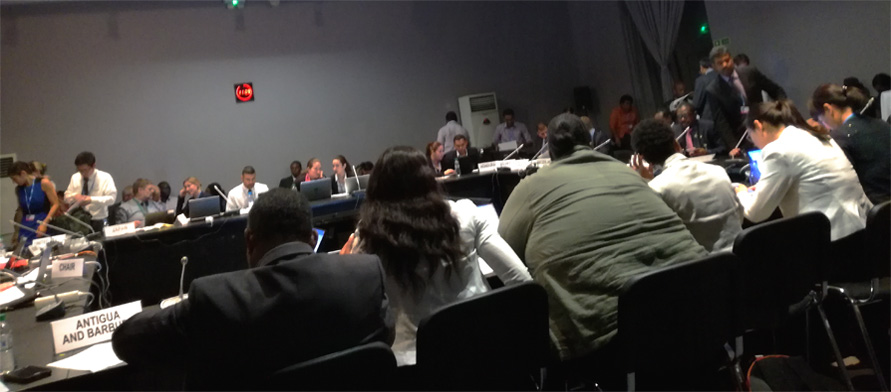
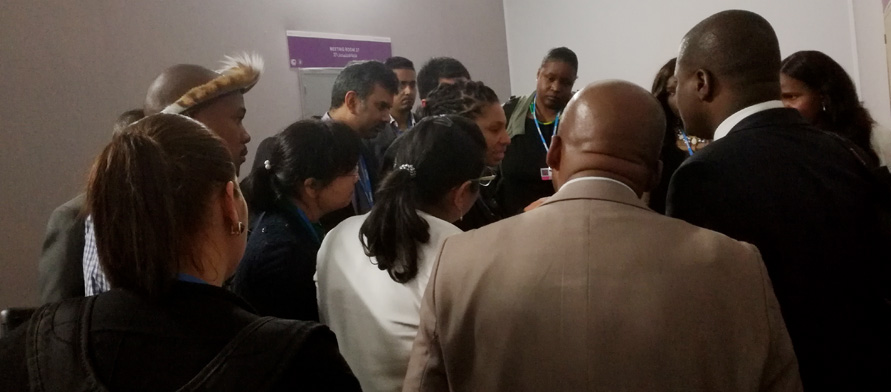
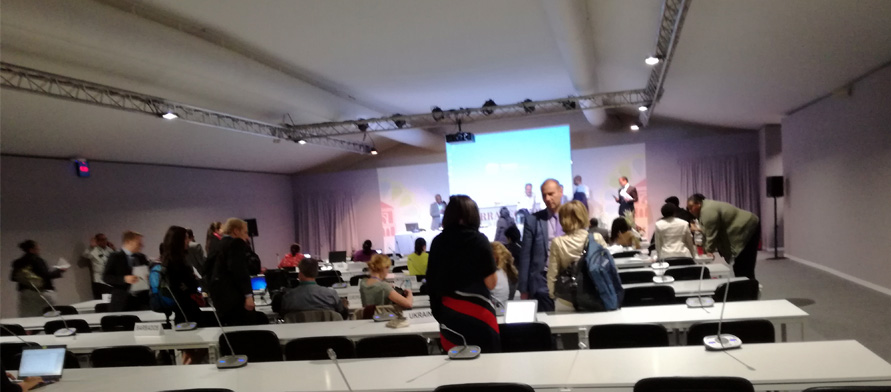
From Marrakech: Ditebogo Lebea, reporting on developments from Faith Based Organisation participation at COP 22
It all started in the book of Genesis when God created the earth. From Genesis 1:1-24 we learn about how God perfected the world; from nothing, God made light, separated water from land, created plant life and vegetation, filled the waters with living creatures and the sky with birds and lastly filled the land with living creatures. This is the story of creation. Thereafter, God created man to care for and love his creations. Today we find ourselves congregating at Conference of the Parties (COP) Conferences looking for solutions to climate change, a consequence of human actions that we are all accountable for.
It is impressive to see how faith based organizations have reformed throughout the century and their appreciation of the sciences. They have realized the influence they have in society and have used this influence to educate and address climate change issues within their jurisdiction. It is only Day Two of the COP 22 Marrakech Conference and faith based organizations have made their mark; engaging with civil society at side events and negotiators. It is encouraging to note that churches have taken the initiative in capacity building (such as educating congregants and community members about climate change and setting up projects that address climate change (eg, gardening and tree planting projects), divesting in fossil fuels and furthermore pledging to 0% carbon emissions by 2050.
An ecumenical prayer was held today , 8 November 2016, at the Church of St Martyrs to pray for climate change as well as pray for the victims and survivors of Typhoon Haiyan. The Philippine delegation joined the prayer and showed much appreciation to churches who have been supportive since the typhoon, furthermore showing their support through the ‘Fast for Climate Change Movement’. More action is to follow from faith based organization as the COP progresses.
DAY 1: Monday, 7 November 2016
From Marrakech: update by Phiwayinkosi Mungwe, official Youth Delegate for South Africa
Yesterday I arrived at the Marrakech International Airport after 24 hours of travelling and was welcomed by representative of the South African Embassy to Morocco. Today marked the opening of the 22nd Conference of the Parties to the United Nations Framework Convention on Climate Change (COP 22). There was an opening plenary session in the morning and few side events, but things are really just getting started. The final touches of the preparations are currently being finished and many of the stands are still going up in the Blue and Green Zones. I will be joining the capacity building negotiations throughout the conference, and my first meeting will be later this afternoon where I will be assisting the South African delegation in a meeting for G77+China. All in all, it has been a calm start, but I know the momentum will pick up as the conference day progresses.
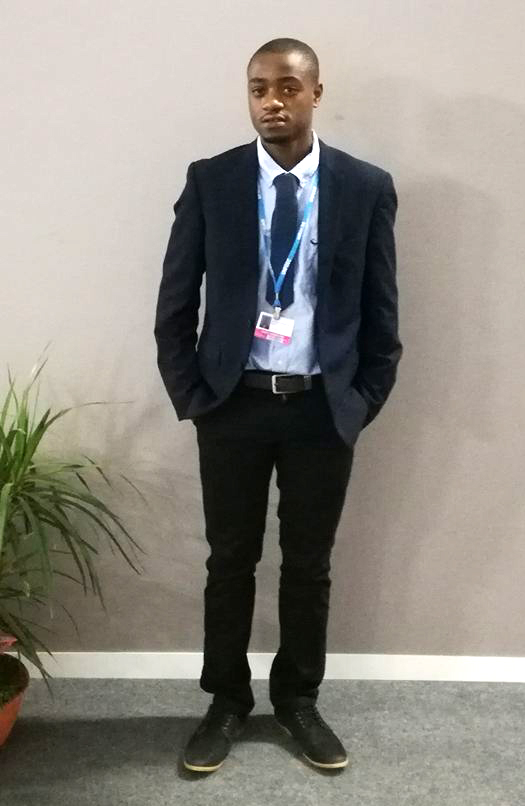
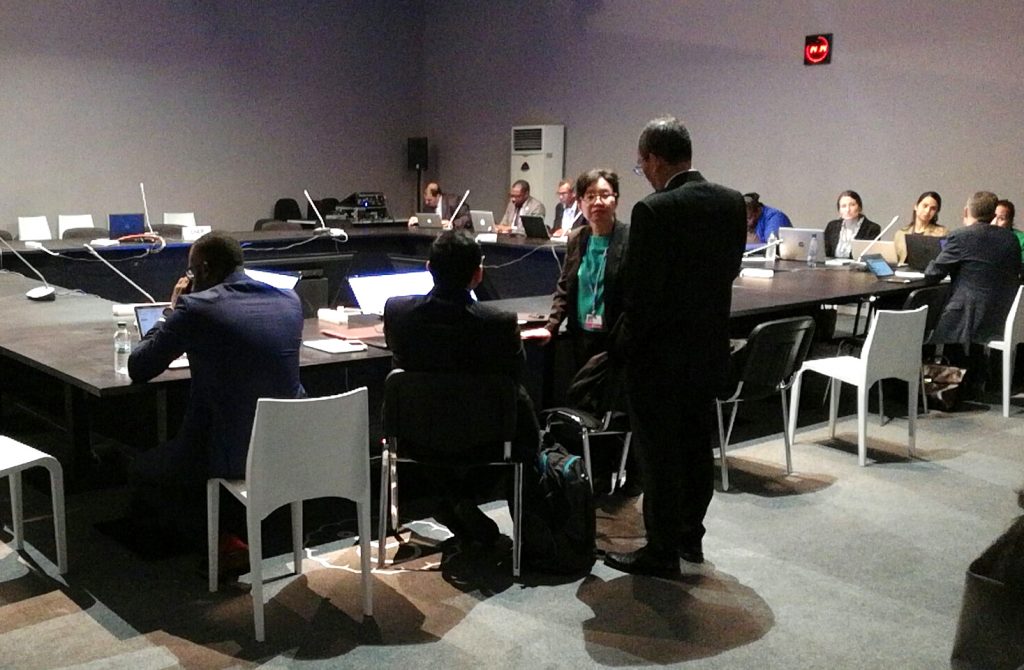
Day 1 – From Marrakech: An update by Ditebogo Lebea, youth delegate for COP 22 with the Lutheran World Federation (LWF)
Arriving in COP is so intimidating as a youth delegate. You’re being amongst thousands of knowledgeable and experienced delegates tends to make you question if you’re in the right place, asking the right questions. Upon our arrival into the blue zone (after a dreadful process of accreditation) we were welcomed by a team from the ACT Alliance who, because it is the first time experience of most of us within the Lutheran World Federation (LWF) delegation, briefed us about the COP proceedings and what we should look out for. Not long after we facilitated a discussion on education and climate change in relation to faith based organizations. It was interesting to discover the stance of faith based organizations and institutions around climate change. There is a noticeable difference between how churches in the north and church in the south, specifically Africa, address climate change issues within their churches and/or organizations. Later a member of the LWF will be in a panel in a side event that addresses education and youth in addressing climate change. The panelists are not only faith based organizations which will prove to be an interesting discussion.
Ditebogo is a youth delegate for COP 22 with the Lutheran World Federation (LWF). She student at Wits University and is an active member of the Youth Policy Committee.

